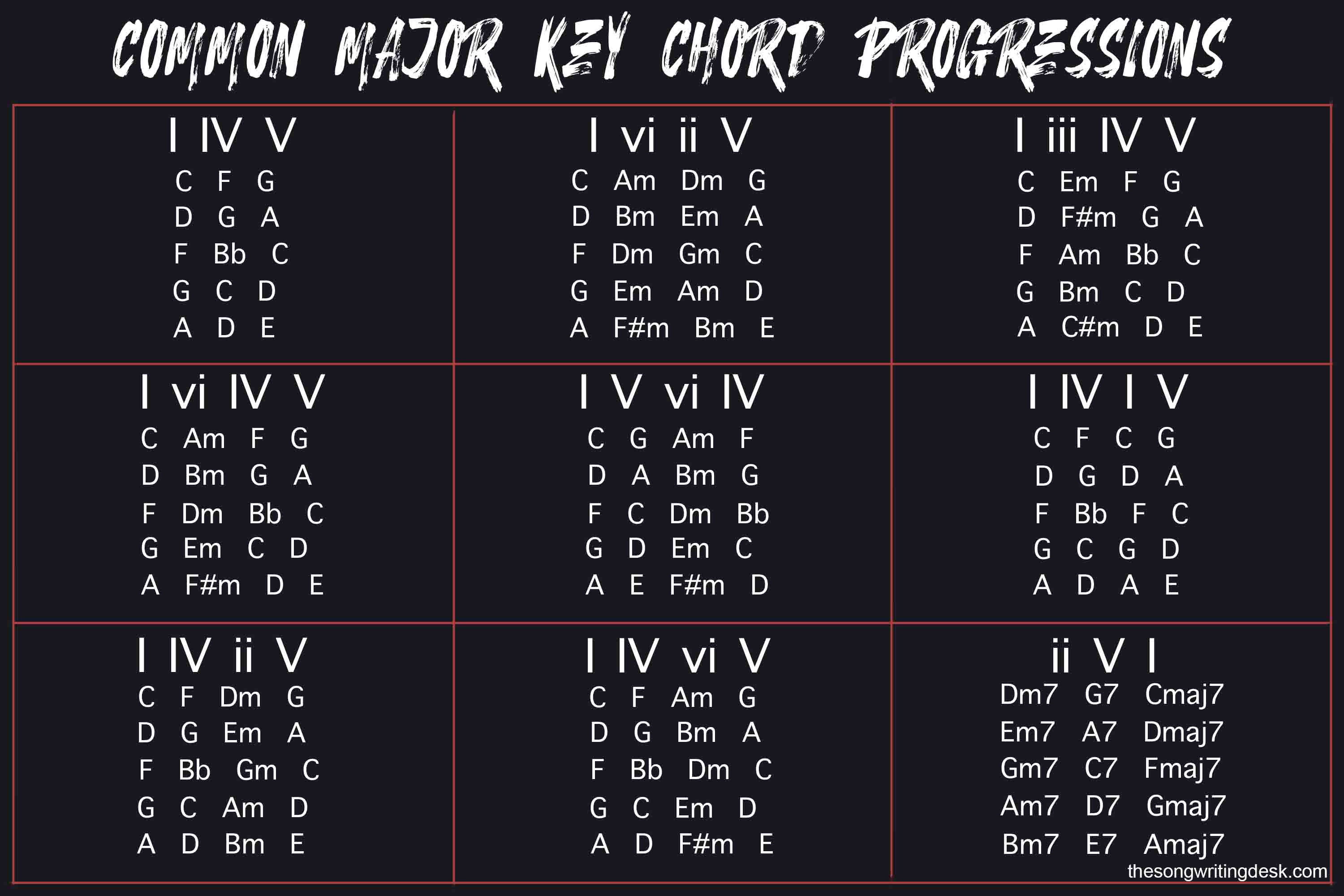
Chord progressions
April 6, 2023 Common Progressions Numbering I-IV-V (1-4-5) I-V-vi-IV (1-5-6-4) ii-V-I (2-5-1) Tips The 3 Best Guitar Chord Progressions (Charts & Examples) Get free estimates from guitar lessons near you. Guitar Chord Progressions Chart Guitar chord progressions Download the Guitar Chord Progressions Chart Printable PDF (as seen above)
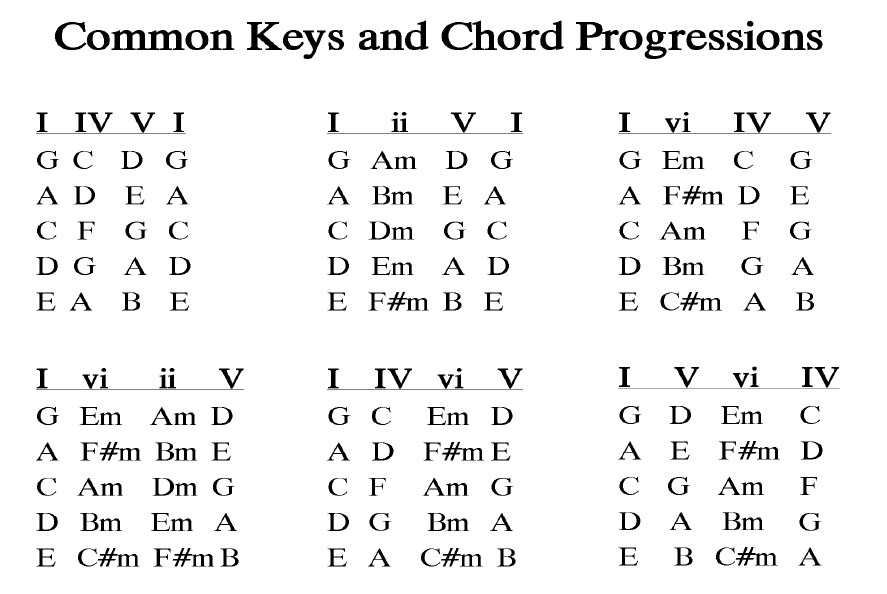
Free Guitar Chord Chart For Any Aspiring Guitarist
Here are three very common chord progressions: 1-4-5-1; 1-6m-4-5-1; 1-6m-2m-5-1; These progressions crop up in lots of songs. For example, you may recognize the second one as 'Heart and Soul,' which many beginning pianists play. Notice that in each progression, the chords start at 'home', move further and further 'away' and then resolve back to.

Piano Chord Progression Guide Chart Poster Printed on NonTearing Waterproof Canvas Music Wall
Chord progressions are when chords move from one to another. Here's a common chord progression: C - Am - F - G If you listen to this chord progression, you'll probably recognize it from a lot of different songs. It's been used over and over again in many songs and many keys through the years. Identifying the Key for a Chord Progression

How to write a chord progression for your piano composition Pianist
1) Common Chord Progressions. These are the most common style of chord progression charts. These charts list common sequences of chords - indicated by roman numerals - that you can immediately apply to any song. These progressions are tried and tested in tons of songs.

Guitar Chords Explained Part 1 Marcus Curtis Music
In its simplest form, a chord progression is the foundation of a song. It is a particular sequence of chords, usually in the same scale or key, played to give the song a meaningful direction. For instance, in C major scale, the notes are C, D, E, F, G, A, B, and C.
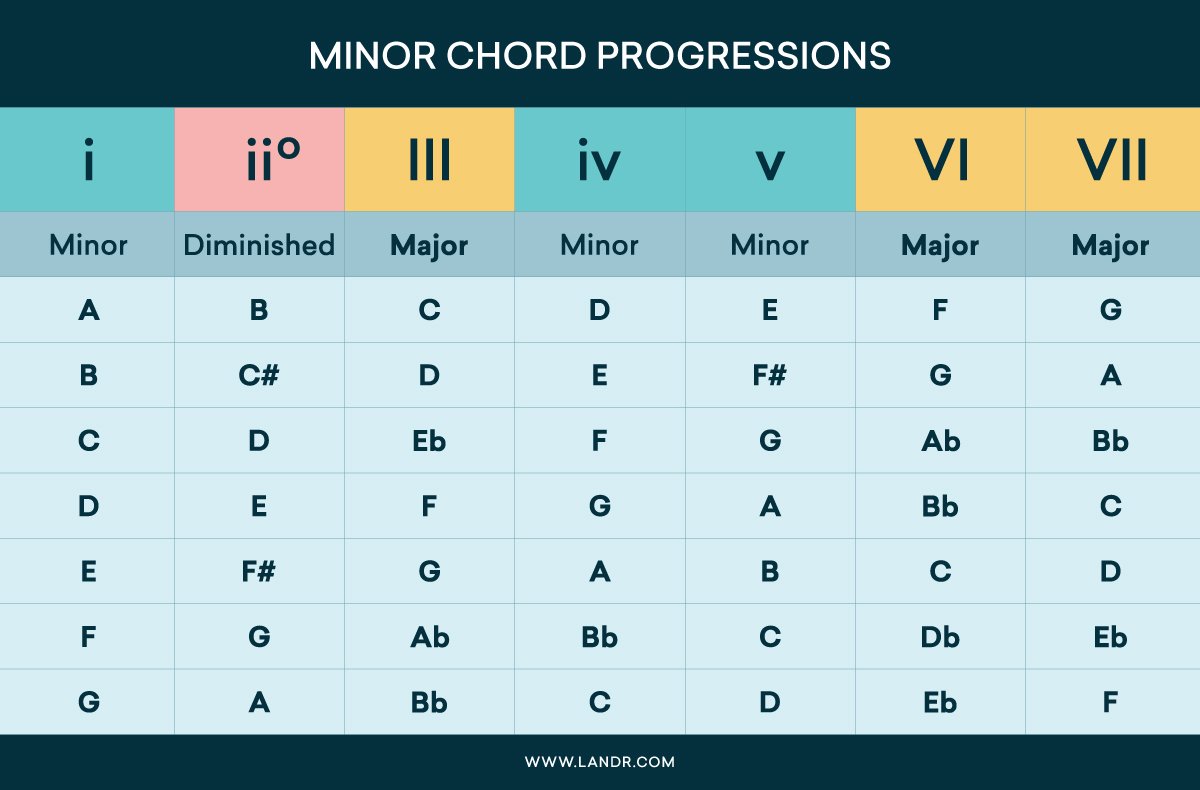
Chord Progressions How Major and Minor Chords Work in Songs LANDR
Chords in a progression are almost always labeled with Roman Numerals based on where the note they start on falls in the scale of the main key. If we're in the key of C major, as we are in the above chord progression, then the Roman Numerals of the scale (and, therefore, chords) are as follows: C = I (one) D = ii (two) E = iii (three) F = IV (four)
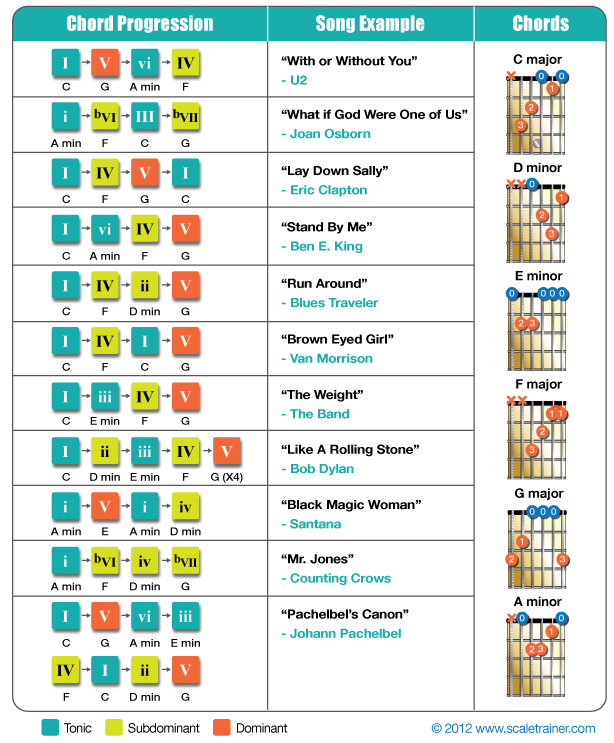
The Most Common Chord Progressions Global Guitar Network
Buy Top Products On eBay. Money Back Guarantee! Over 80% New & Buy It Now; This Is The New eBay. Find Great Deals Now!
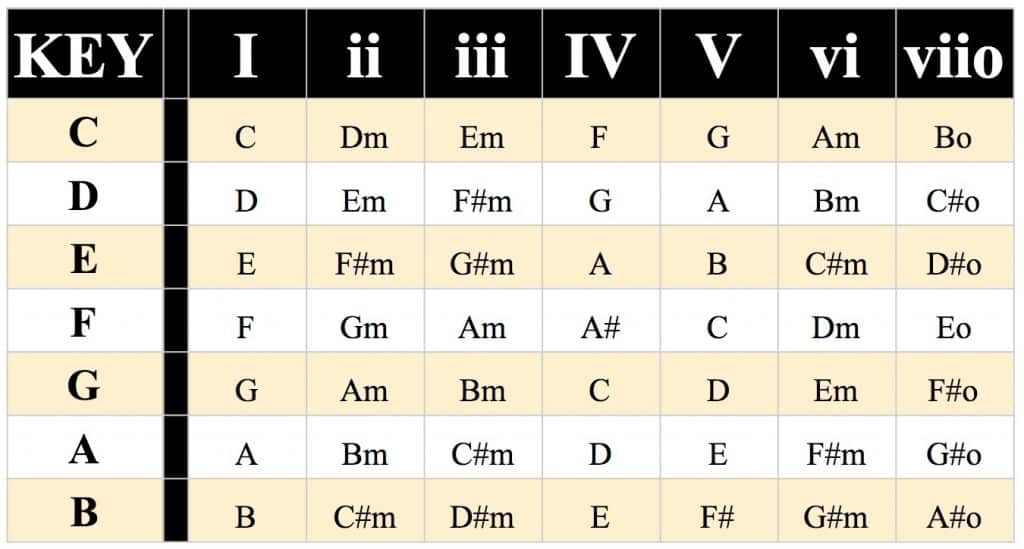
4,782 Songs You Can Play [Using Just 5 Common Chord Progressions]
3. 50s Progression (I, vi, IV V) The 50s chord progression uses the same chords as the singer/songwriter progression, but in a different order. The difference between the 50s progression and variations on the singer/songwriter progression is that you always play these chords in this order no matter what your starting point is.

Diatonic Chord Progressions — The Shed Music theory Music theory guitar, Learn music theory
To assist in this process, we've created simple chord progression charts for major and minor keys. If you're looking for some help with writing your next piece of music, continue reading! Chord Progressions in Major. Before we dive into major chord progressions, it's important to understand the major scale. The major scale is a seven-note.

How to build and play piano chord progressions? The definitive guide!
Chord progressions are series of two or more chords used in a piece of music. The chords in a progression are represented by roman numerals and are determined by key. From Beach House to Beethoven, chord progressions determine how a piece of music unfolds over time.
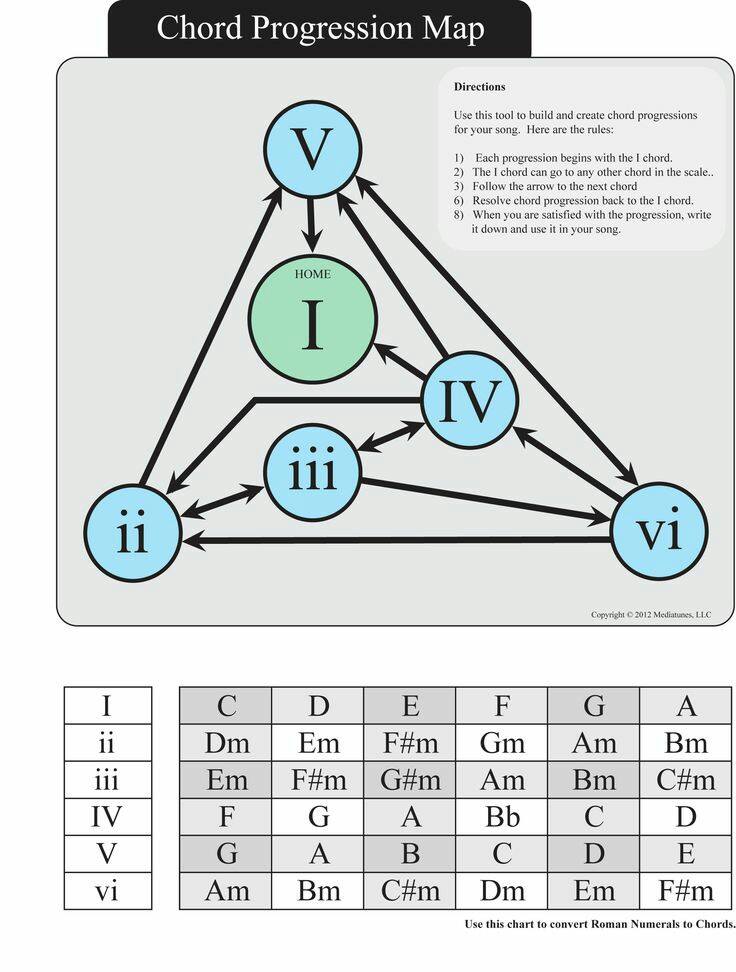
Chord Progressions Guitar Classes Koramangala Guitar Classes Bangalore Guitar Classes
A chord progression is a simple, harmonic succession of the three-note (or more) delights that we call chords. Chord progressions are absolutely fundamental to virtually every style of music that exists (except, maybe Techno).
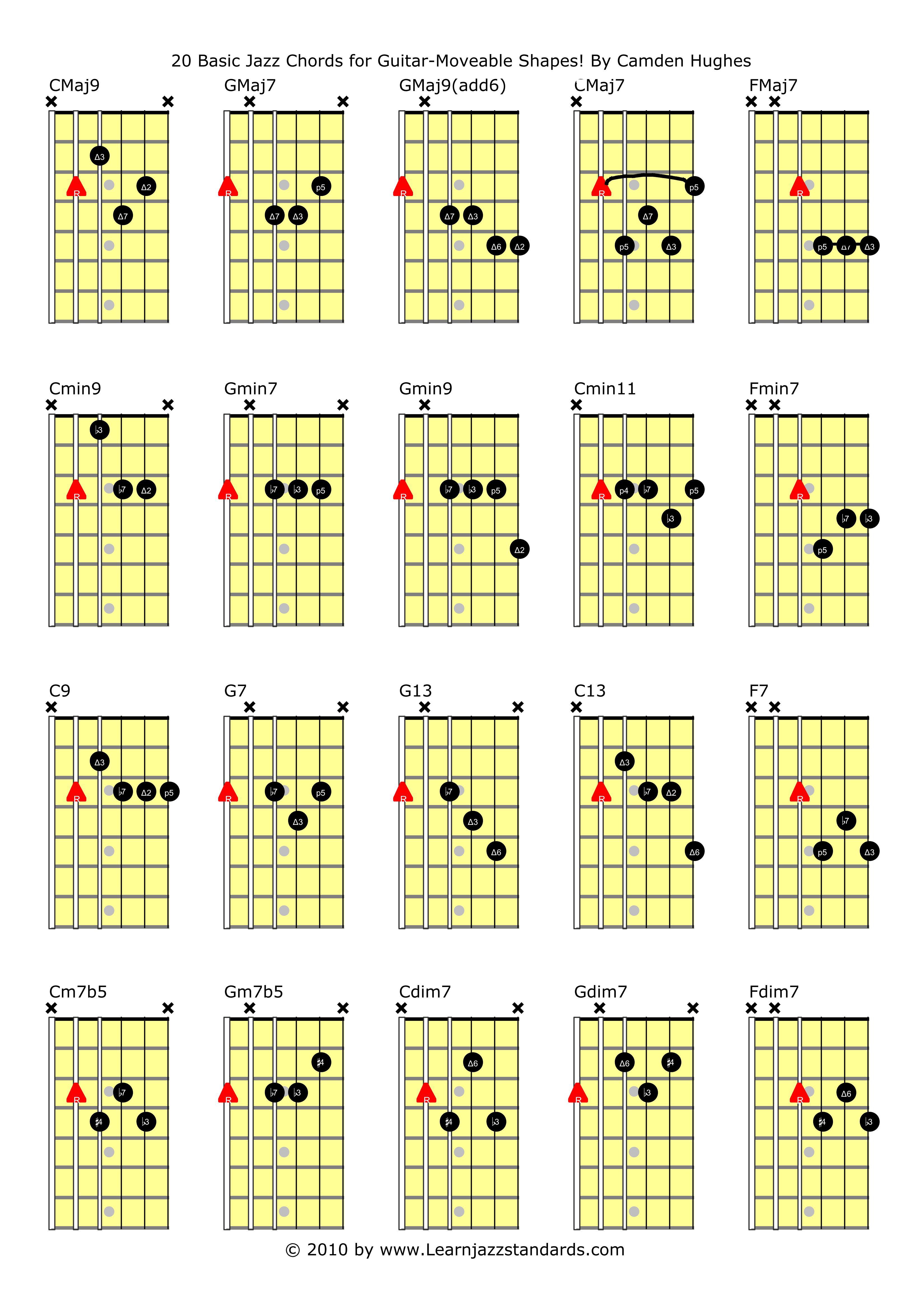
20 Basic Jazz Chords for Guitar Learn Jazz Standards
Creating Chord Progressions - A Useful Chart Here's a chord progression chart you to help you with your chord progressions. We've already covered much of the basics of how to create major and minor chords, understanding the basics of scales and key, and how to make use of these when working with sample loops and one shots.

Guitar Chords Progression Chart
The term chord progression simply refers to the order in which chords are played in a song/piece of music. Play a few different songs/pieces and you will see that there are various different ways in which composers order chords.
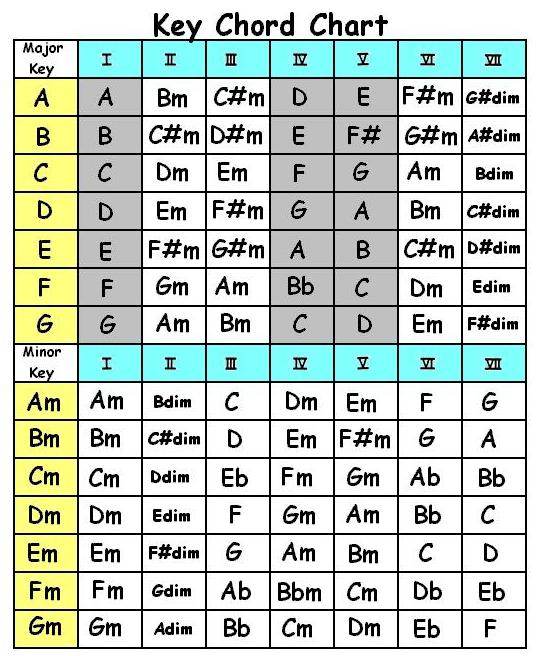
Guitar Lessons Blog Songwriting Chord Progressions
Lessons Acoustics Amps Effects Electrics Pickups Recent 27 Chord Progressions for Guitar Players and Reference for Rhythm Technique Written by Bobby Kittleberger November 20, 2023 13 Comments Filed Under: Chords, Lessons The bulk of existing chord progressions never really change.

Major Key Chord Progressions Chart Julie Swihart
Try out these famous chord progressions: I-IV-V-I I-V-vi-IV I-vi-IV-V vi-IV-I-V i- I-vi-ii-V I-V-vi-iii-IV-I-IV-V I-ii-iii-IV-V V-IV-I ii-V-I Making your own chord progressions? Try Using The.
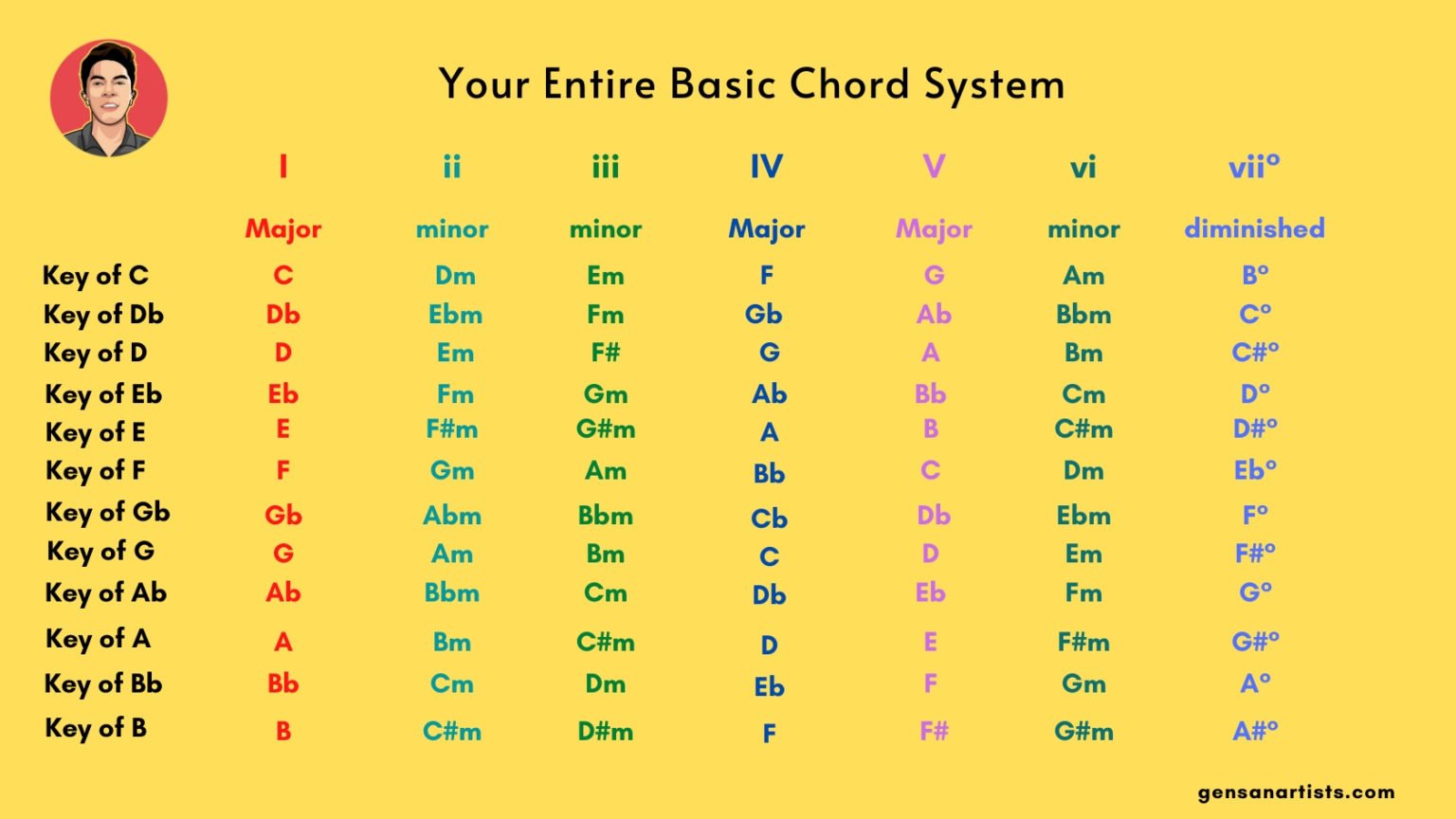
Simplifying Chord Progressions Used By Hit Songs in 2021
Getting creative with your chords and chord progressions can further enhance the intrigue of your beats. #1. Layering Chords with Synths, Pads, or Other Textures. Layering chords with synths, pads, or textures can add depth and ambiance to a track. Think of it as painting with sound 一 each layer offers a new hue.